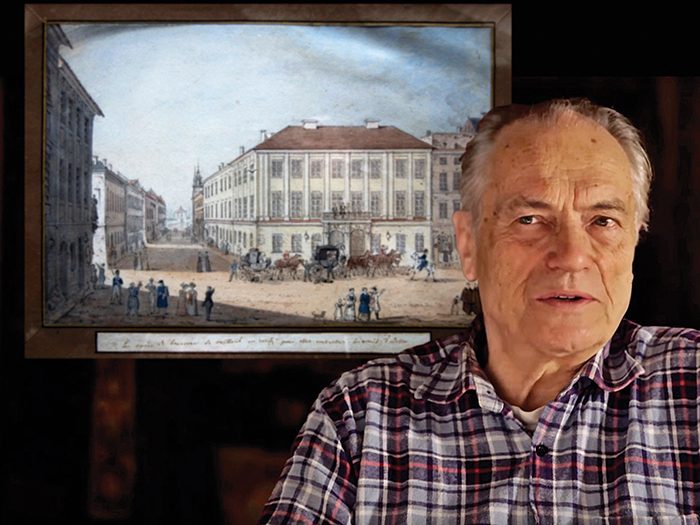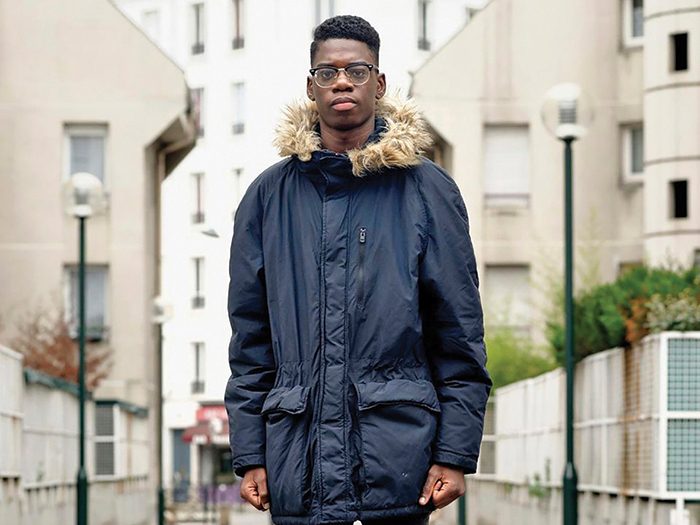Good News
Some of the positive stories coming our way

Stolen art returned
History It’s estimated that half a million art objects were plundered from Poland by Nazi and Soviet forces during the Second World War. In the following decades, the country has tried to regain its looted treasures, even having to buy them back from the descendants of those who stole them. But one such descendant, Horst Wächter, (pictured) has set a new example.
Wächter, 78, is the son of a notorious former Nazi governor of Kraków, SS Gruppenführer Otto Wächter, and his mother was responsible for stealing many priceless works of art from Krakow’s National Museum to decorate her husband’s HQ. But now the son has given three stolen works back. At a ceremony in Krakow he returned a painting of the Potocki Palace (above), a map of 17th-century Poland and an engraving of Kraków during the Renaissance.
He says he took the decision to return the artworks for the sake of his mother’s memory. “I am not especially proud of my deeds,” he says. “I do not return the objects for me, but for my mother.”
Laser zaps a sticky issue
Environment The problem with those sticky labels you find on items of fruit isn’t just that they get caught on your fingers when you try to remove them—they’re also a waste of plastic and energy. But a Spanish company has devised a technique, called “natural branding”, that replaces stickers with a laser mark.
Dutch fruit and veg supplier Nature & More and Swedish supermarket ICA have already trialed the new approach on avocados and sweet potatoes. The laser removes pigment from a fruit’s skin and the mark is removed when the skin is peeled.
“By using natural branding on all the avocados we would sell in one year we will save 200km of plastic 30cm wide. It’s a small thing but I think it adds up,” says Peter Hagg, ICA’s business unit manager, who is looking to try the technique on edible-skin fruit, such as apples.
Spain bans docking of dogs
Animals The practice of removing a dog’s tail (known as docking) has been outlawed in Spain—bringing the country in line with the 1987 European pet protection convention. It had long been justified by hunters, who said it prevented their dogs from collecting burrs or brambles that could result in pain or infection. But no more. “Cutting the tail due to the owner’s own whims is cruelty,” said Zaida Cantera from the PSOE party.

Youth saves child from blazing car
Heroes Teenager Emmanuel Toula (pictured) was taking part in a protest against racism in a Paris suburb when things turned violent. He saw a car that had been set on fire and realized there was a small child inside.
Thinking of his own younger siblings, he rushed to pull the six-year-old girl from the car, risking his own life.
“I was afraid, because I thought the car could explode at any moment,” he says. “I took the little girl in my arms, still trembling, and then I tried to run. I have four little brothers and two little sisters: I thought I could not leave a little one like that.”
The French police have hailed Emmanuel’s courage, but he remains modest. “I’m not a hero,” he insists. “I’m a big brother who thought of his little sister despite the fear.”
Sources: History: The Guardian, 26.2.17. Environment: The Guardian, 16.1.17. Animals: The Local (Spain), 17.3.17. Heroes: Metro, 12.2.17



